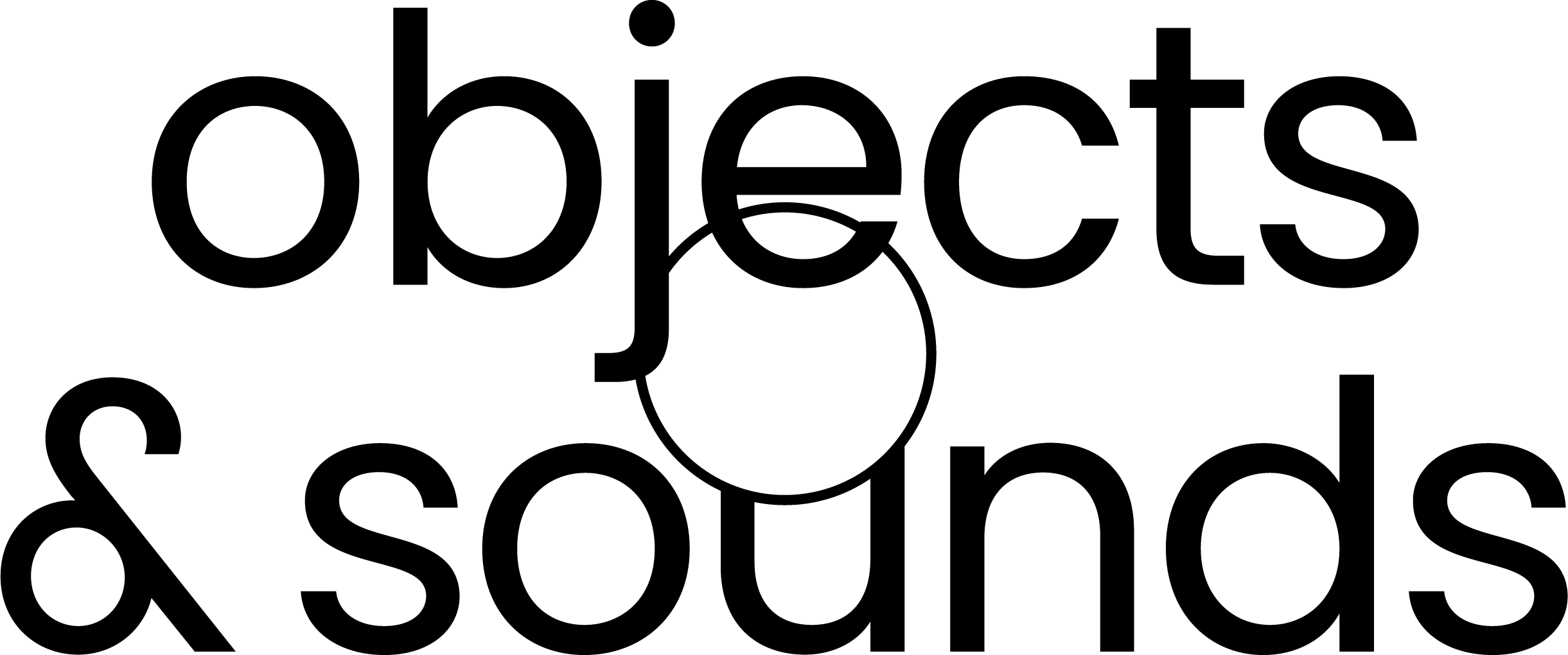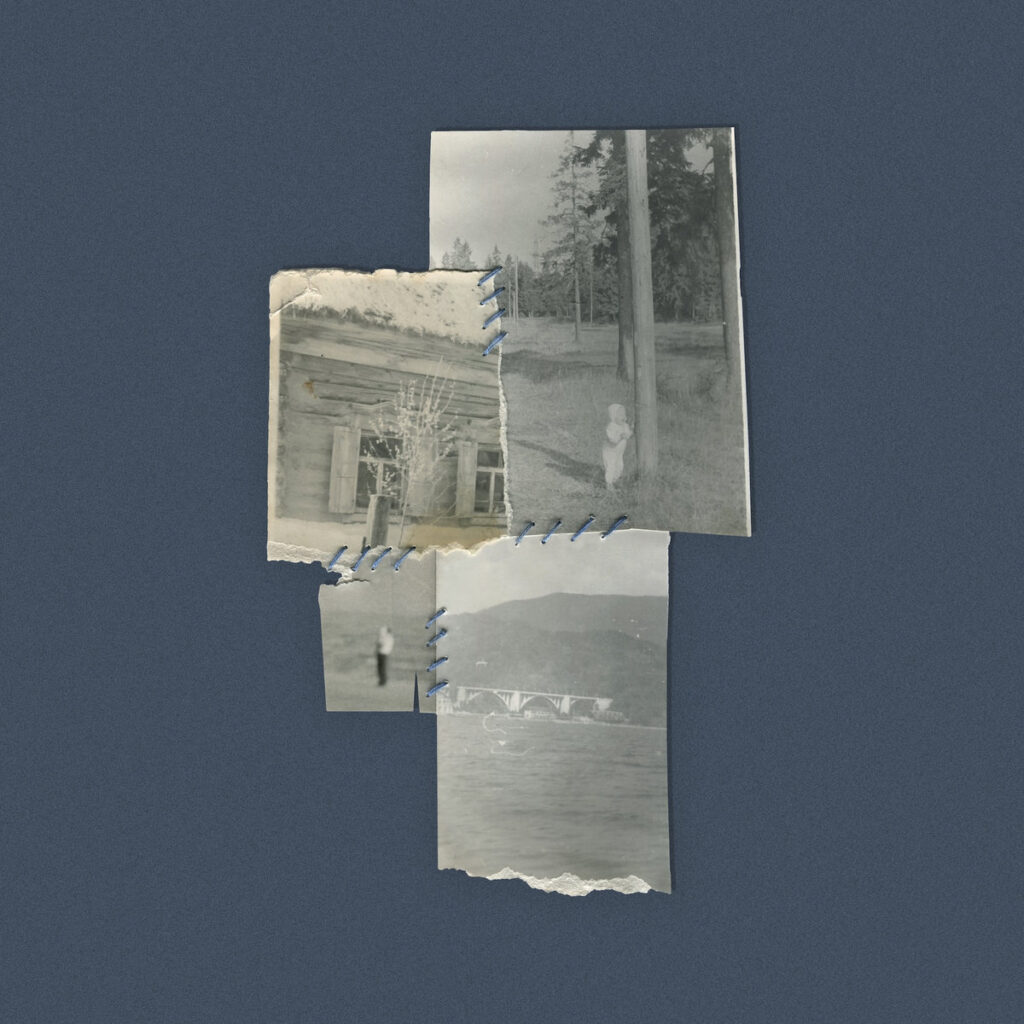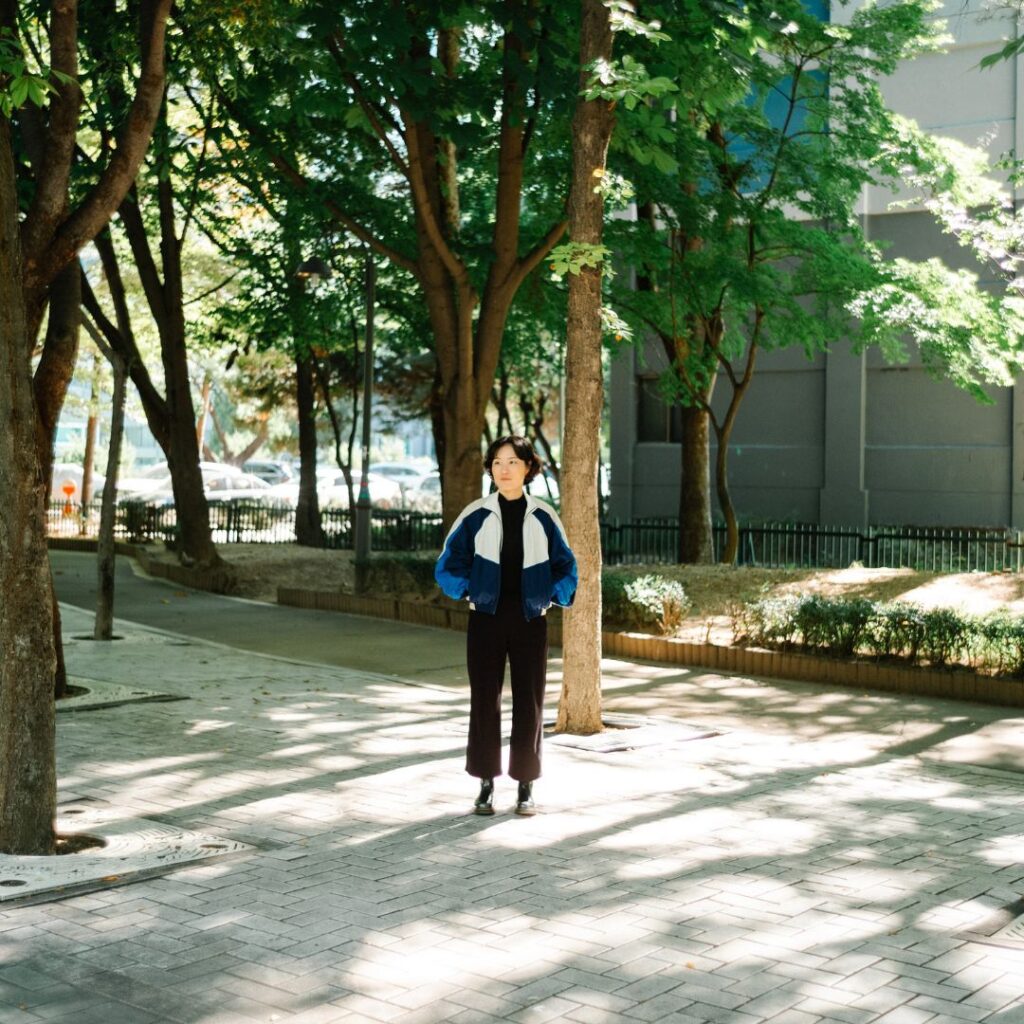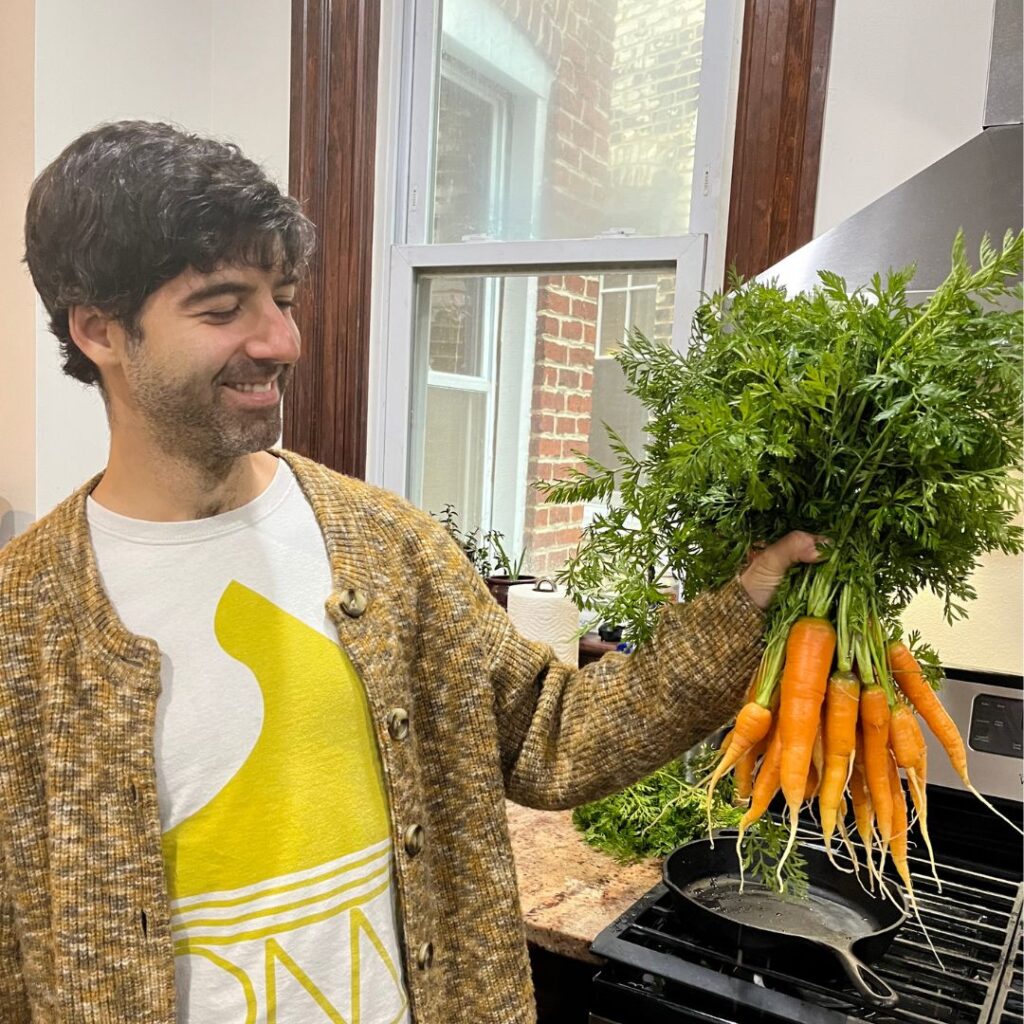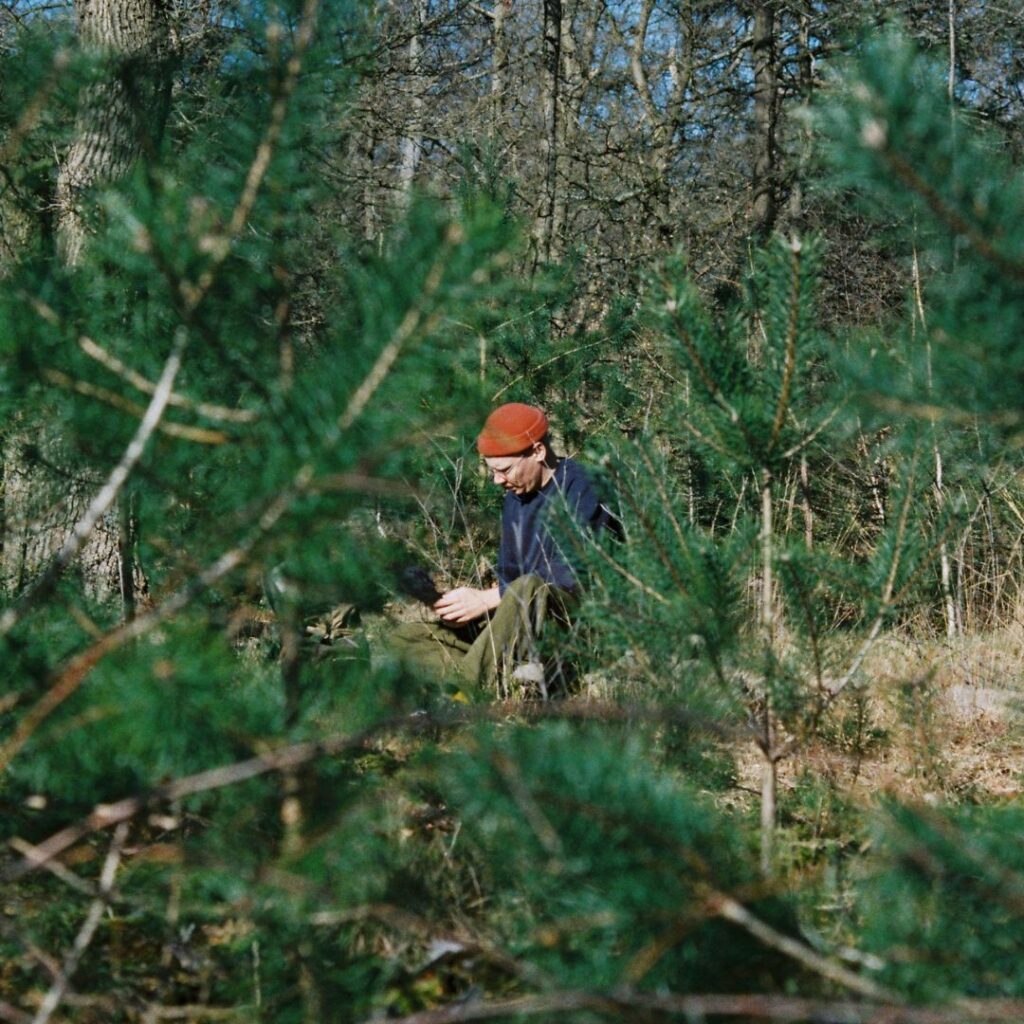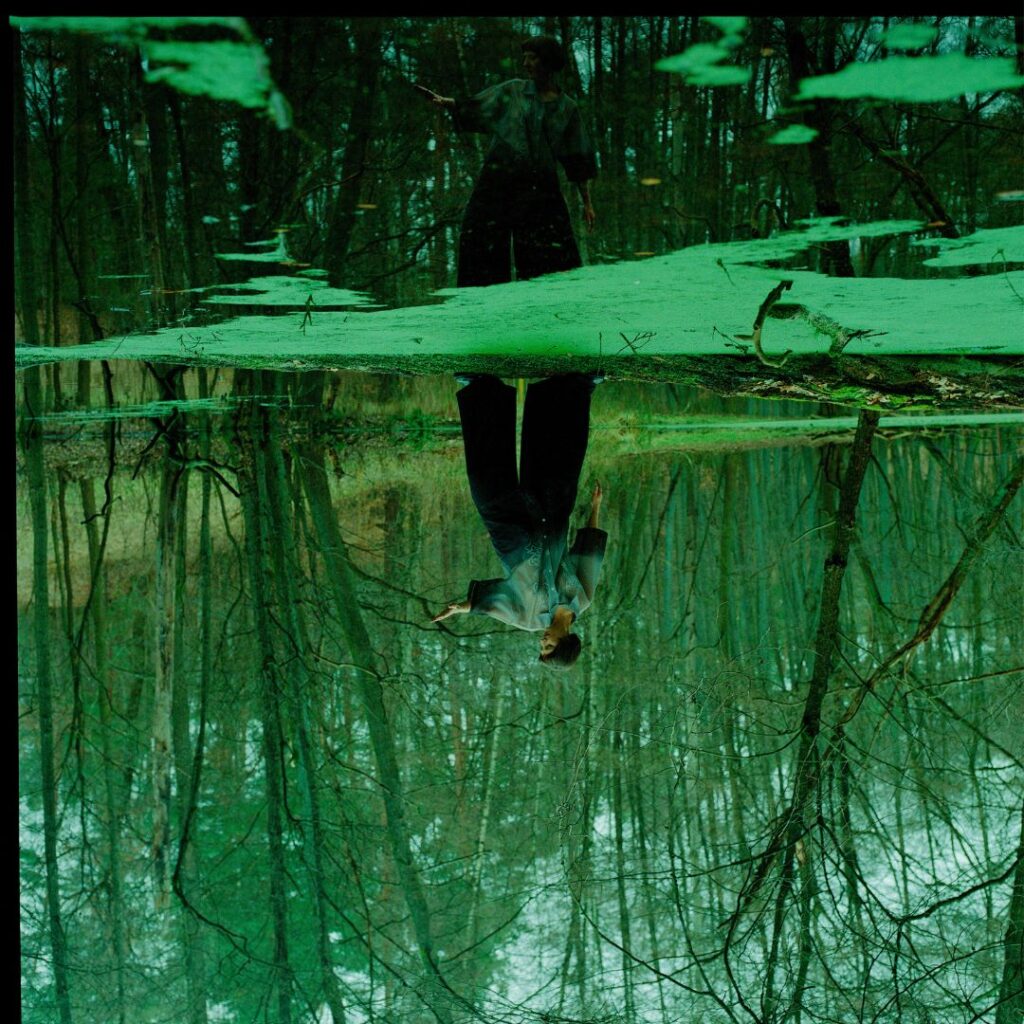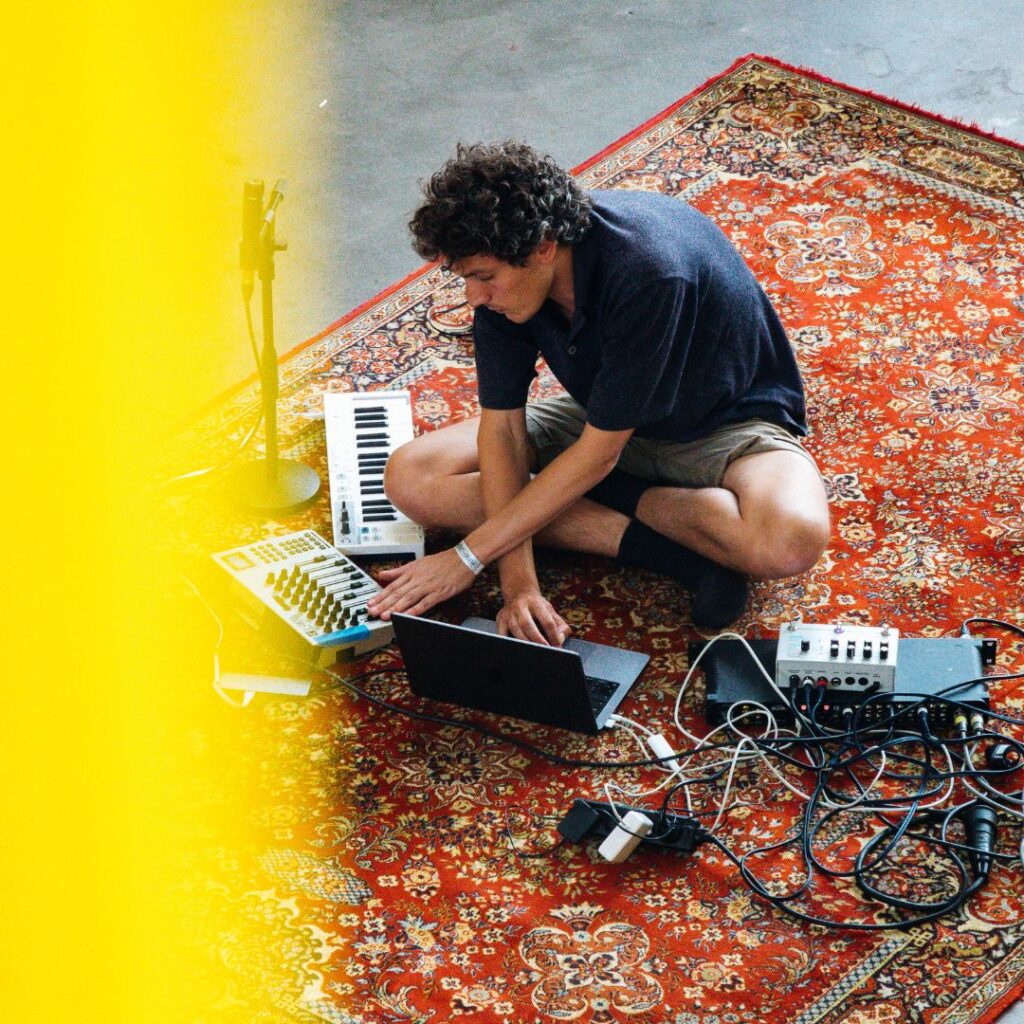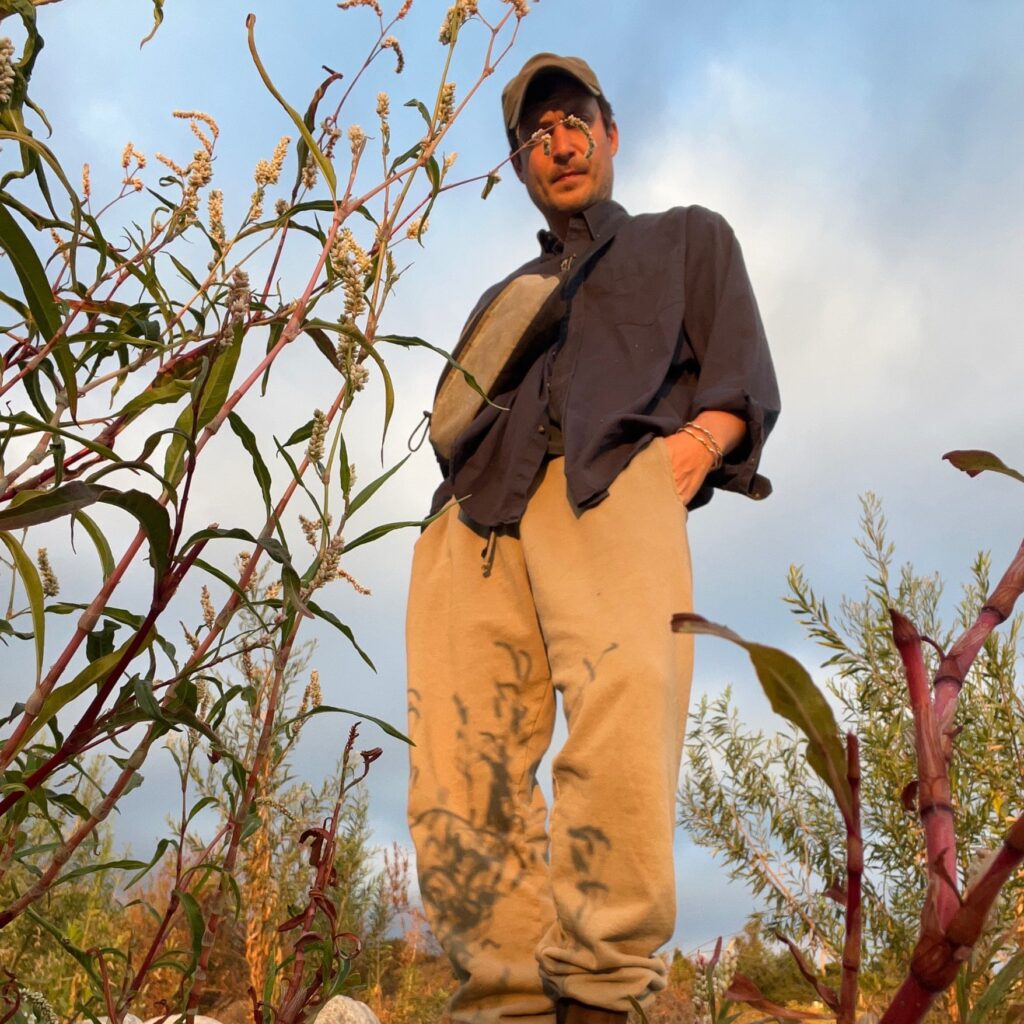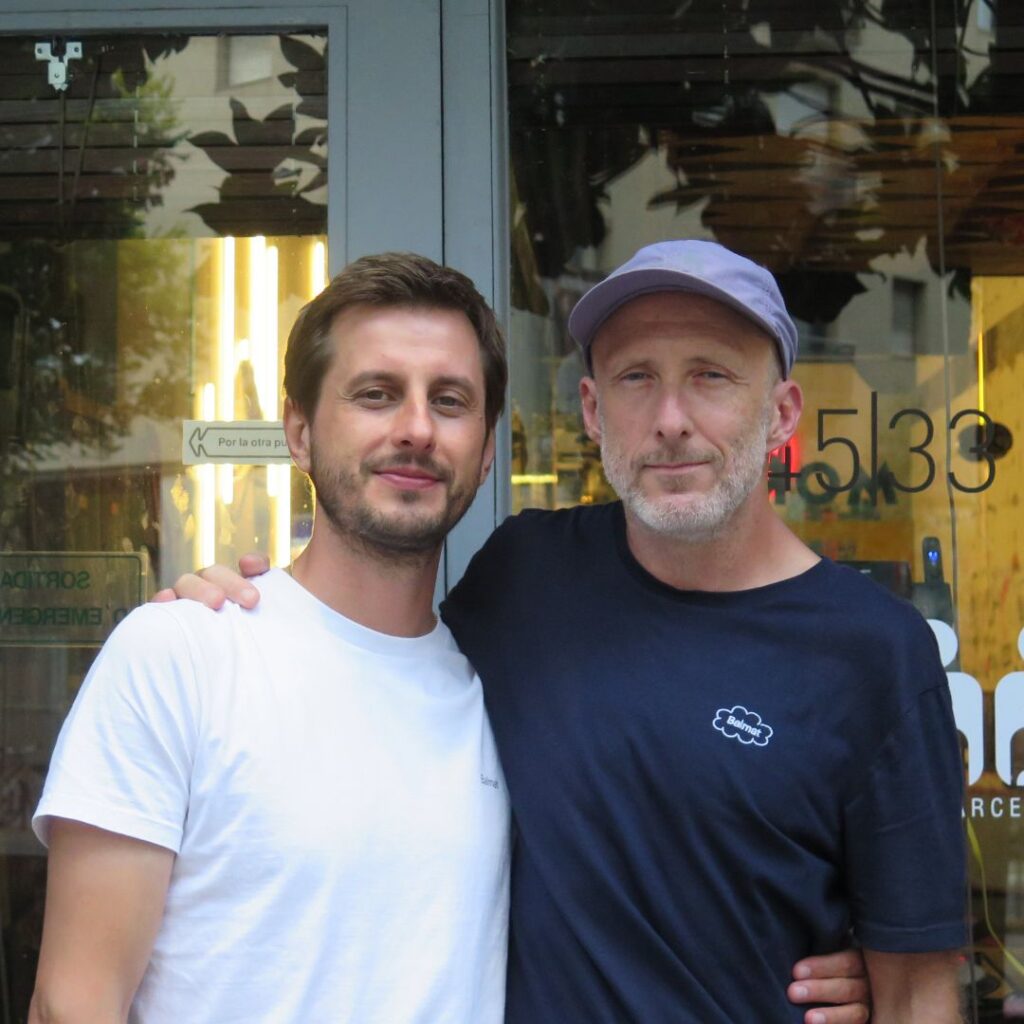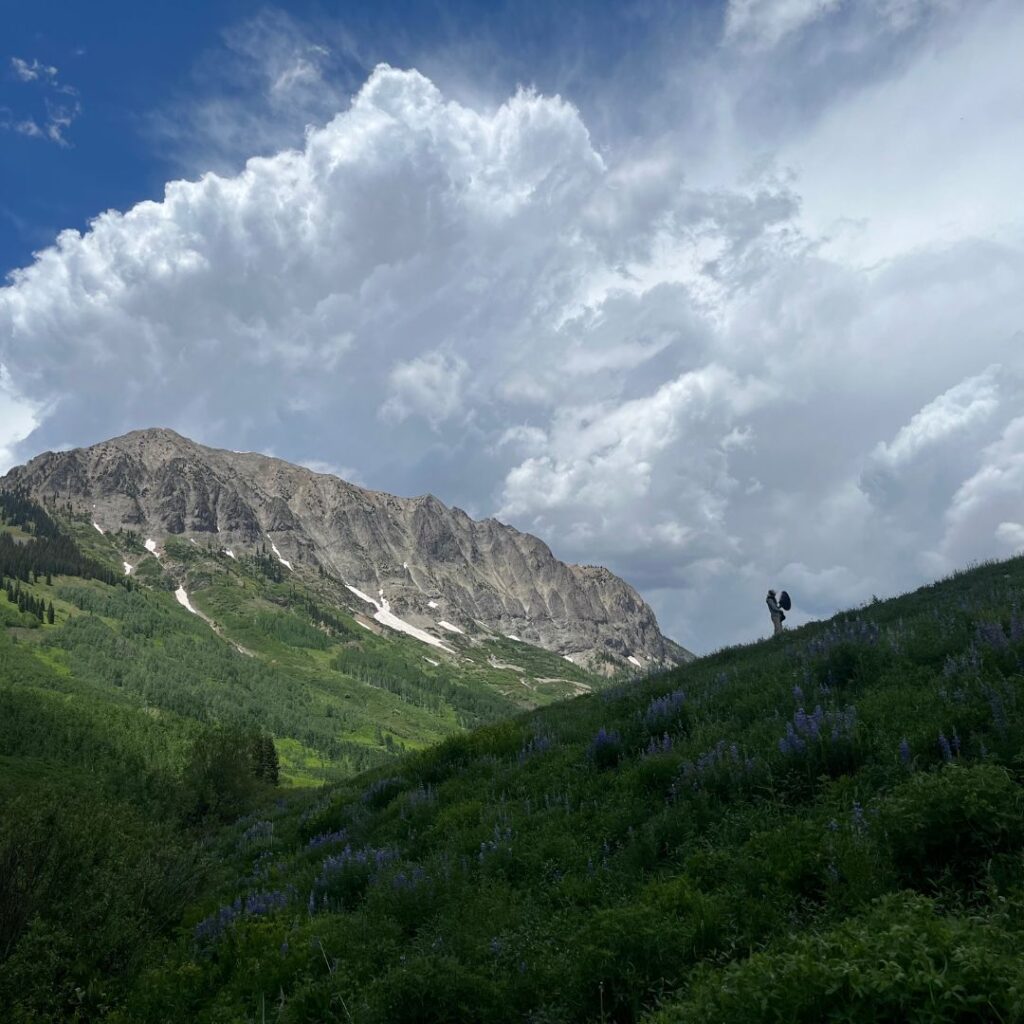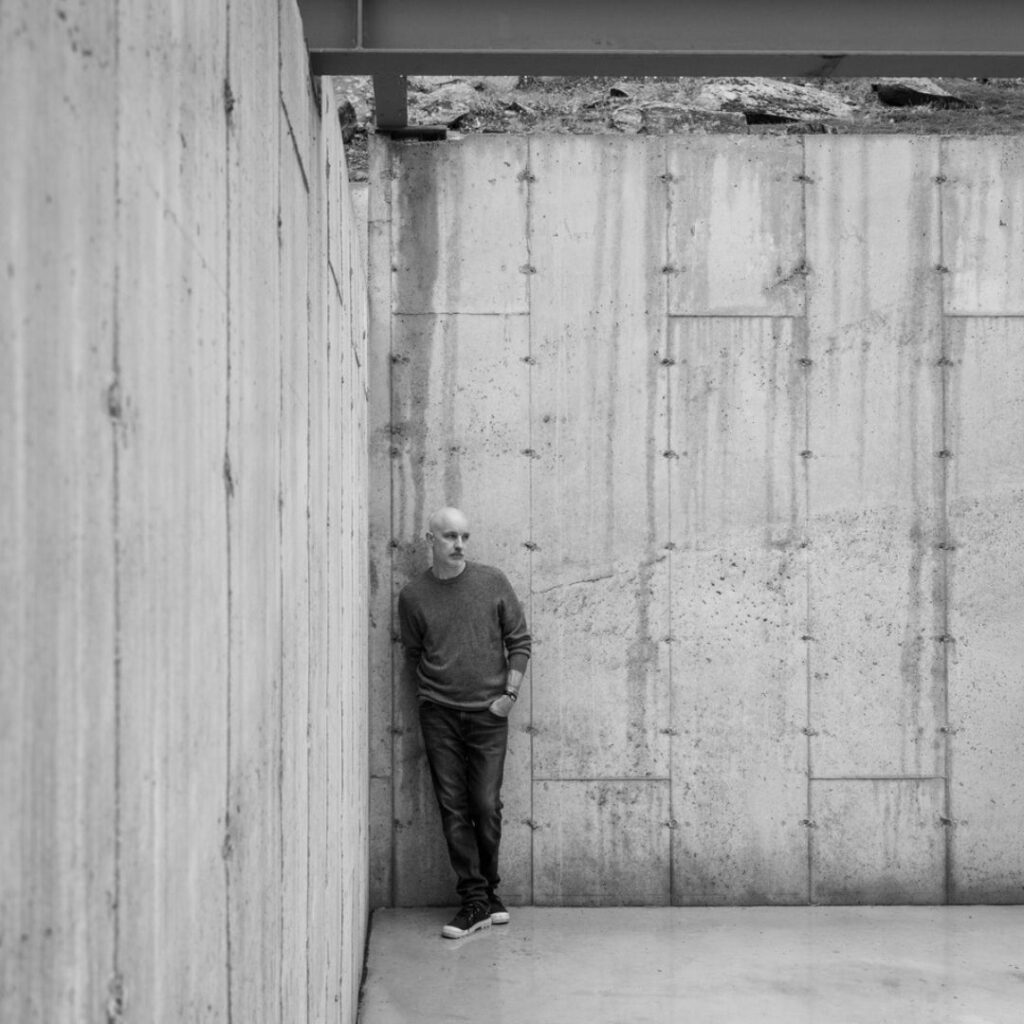Finding the sublime in the present moment with Ned Milligan
New York-based artist Ned Milligan is one of those individuals whose demeanor and musical output seem to mirror one another: a gentleness, a groundedness, and a sense of flowing gratitude that envelops every crevice. His releases integrate wind chimes, singing drums, and field recordings that, rather than demand your attention, invite you to open your ears to the world that surrounds you, the soft hum of stillness and attention. These qualities also shine through across the releases of his record label Florabelle, an imprint home to small-run editions.
Read on to learn more about Ned’s approach to music making, Florabelle, and the humble joy that comes with creation.
When listening to your music, it’s really interesting that your main instrument of choice has been the wind chimes. What is it about wind chimes that speaks to you?
I’ve been trying to think of whether there’s some really deep, multilayered answer to it, but I know that the immediate part of it is just that I responded to how resonant they are. I had made some music before that was more computer-based, but then I took a break with it for a while. I just wasn’t feeling like I knew what to do or I wasn’t feeling the urge. Sometime after, I stayed at a house with friends that happened to have some wind chimes. I was just engaging with the chimes at this house and began recording them. I felt immediately connected to them as an instrument. I had not really thought much about it before, but I realized how they completely connected to elements of drone music or kind of like held tones and overtones. Without doing a lot of research, I just started getting a couple sets of chimes and ones that were built to be extra resonant, to have their tones last especially longer.
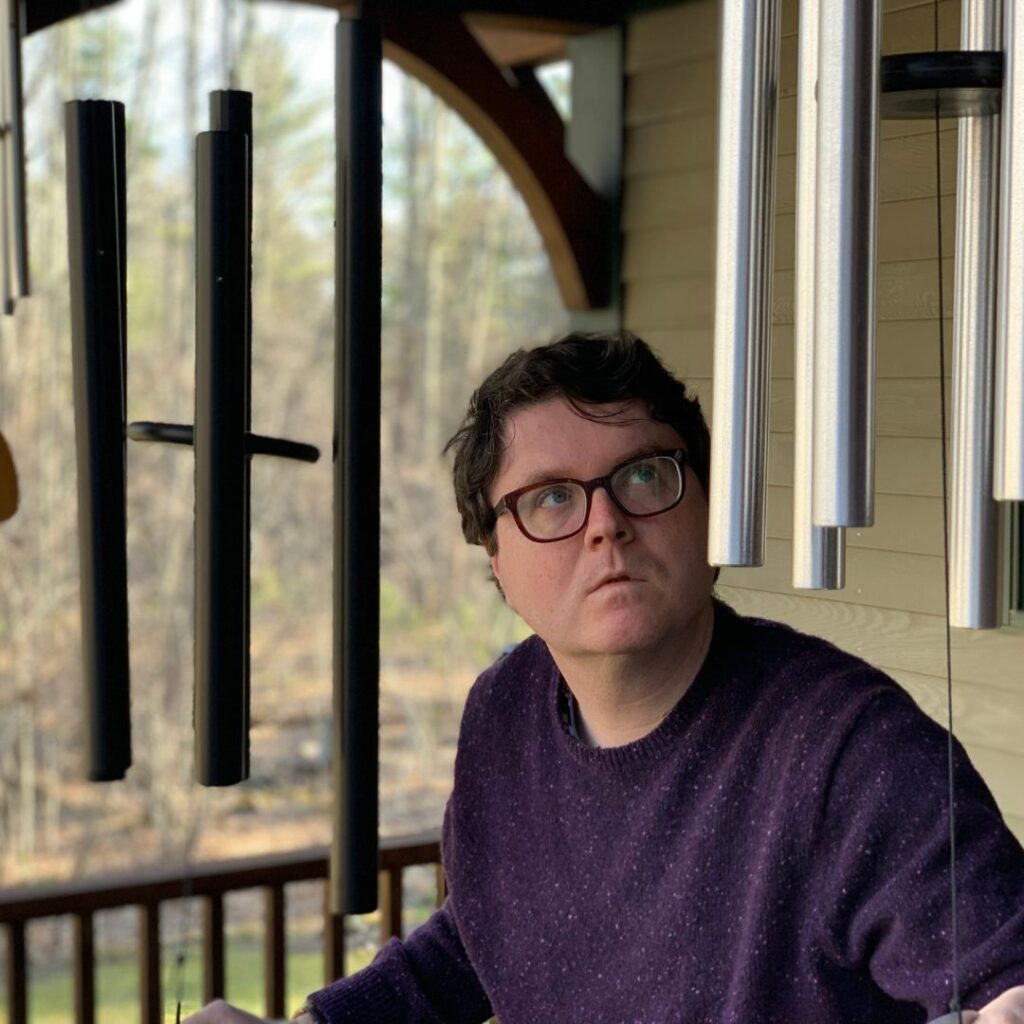
How do you go about recording them?
I was fortunate enough that my mothers-in-law have this house in Maine, and they were kind enough to let me hang these chimes on their porch. As a city kid and someone who has spent their entire life in New York City, I don’t really know what it’s like to live in a rural setting. I was kind of awakened by just being outside and integrating with nature in a little bit more of an immediate way, you know? It was a combination of being able to let these sounds and these tones ring out, but also doing it in that space.
I’ve never recorded chimes in a studio. I know that it would also work in a studio, but it also kind of wouldn’t mean the same thing to me. For me, the setting where I’m recording is pretty important, if not on equal footing, to the actual tones of the chimes themselves.
It’s interesting how much the setting and the instrument itself seemingly blend in your music.
For sure. There’s something that I do really like about chimes being this kind of ready-made instrument that just sort of plays itself.
I also recently did a release where I worked with a singing drum. It’s a melodic kind of thing that I think people use for meditation. A lot of times I’ll just go outside, especially if it’s raining, stick a mic under it, and record the sounds that are happening because it creates this wonderful tonal scatter of just things being played all the time. So I can play along with that. Or I’ll just stick the drum under the eave of the house and let the thawing ice hit it.
Again, just really seemingly basic stuff, and I’m doing it outside and kind of seeing what moves me.
How do you prepare your musical concepts?
It’s a little intuitive, honestly. It’s mostly asking, “Where is this moment taking me?” When it comes down to what do I want to do when I actually put it onto a record, for the most part it’s been, “How can I create a piece that builds and feels worth the listeners time?” I’m also trying hard not to repeat myself, because I know that I’m already working with a limited setup.
I have three sets of chimes, and generally speaking, there’s a range of high, mid, and low. Sometimes when I’m playing, I’ll start with one set and focus on it, and then integrate others. The ones that I’ve collected share the same scale, so fortunately they’re not going to sound terrible together, but I’m also trying to make choices. I’m trying to keep a balance of tonality and texture in a lot of the pieces I’m making. I think that’s what kind of guides my composition.
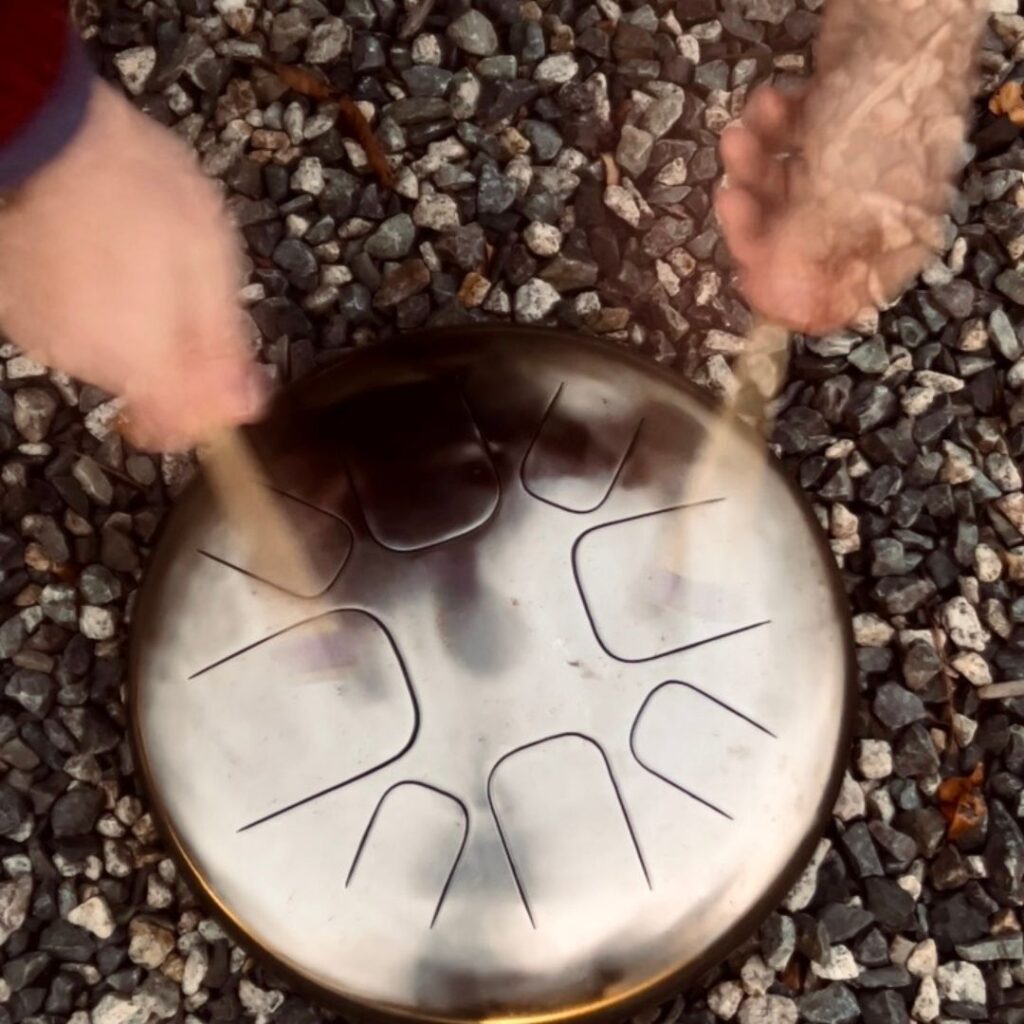
As chimes are more difficult to “manipulate,” how do you approach the recording process?
Usually I just kind of start quietly. Chimes are a little bit hard to manoeuvre in the sense of, “Let me get this repeated motif.” They’re designed to sway. But you can hold the clapper, the hanging piece, so that it can hit certain notes, and at the same time, I just have to allow for other things to come into the mix, because I’m never going to be able to control it completely.
Recording outdoors plays a large role for sure. You might hear some crickets or maybe there’s a car driving down the road. And it’s in the mix for 30 seconds or something. Hopefully those are details that don’t feel like they’re pulling you out of a piece, but that they’re adding. It’s just another element that becomes part of the atmosphere.
There’s a part of me that also is constantly trying to figure out if the tracks are enough. Should they have more elements? More layers? I know that from listening to minimalist or ambient music for decades now, it doesn’t have to be, but I think that’s still a thing I fight within myself. And I think the chimes have helped me develop an ability to say this is enough. Just kind of creating this space and having these sounds is enough, and there’s value in that.
On the liner notes for ‘Enter Outside’, you mentioned that the music is “an intentional mix of the mundane and sublime.” What does that mean to you?
The mundane piece is perhaps the banality of the source. These are sounds you can get from a hardware store or the pharmacy even. And the sublime is really being willing to be honest with myself and say that this feels wonderful for me to do, and to be outside in a space that feels potentially both totally mundane and special. I think that on some level, that kind of thing can feel elemental and really deep with meaning for me in a way that can sometimes be overwhelming. I think that’s where the sublime is coming in for me. It’s just this kind of feeling of gratitude to be able to experience that.
I think that part of it also has to do with me having a kid. I’m a teacher and I’ve worked with kids my entire professional career, but also having one and spending so much time with him…. For kids, the mundane and the sublime I think are happening all the time, simultaneously. And that’s part of what makes them amazing and sometimes very challenging.
What do you teach?
I’m in my 10th year now at a Quaker school for kids with learning disabilities. I really enjoy doing that. Working in special ed means that I have a small class and I get to know the students really well. A lot of what we do is just meet students where they are and figure out the best way to engage them with the content. That’s been a meaningful line of work for me.
The Quaker element is not the kind of thing that creeps into our practice hour by hour or something other than the kids getting to call me by my first name. However, one thing that we do is sit in silence. Twice a week we gather as a community and reflect on a question that a teacher poses or share information about each other’s classes. There is something very powerful about being in a quiet room with other people. Of course some of the kids are just thinking, “This is so boring. When can I leave?” But, some of them, you can see that they find meaning in it, and it’s meaningful for me, too. One of the Quaker values is simplicity. Without trying to put too strong, or too fine, a point on it, I think that keeping simplicity in mind is something that has informed my music.
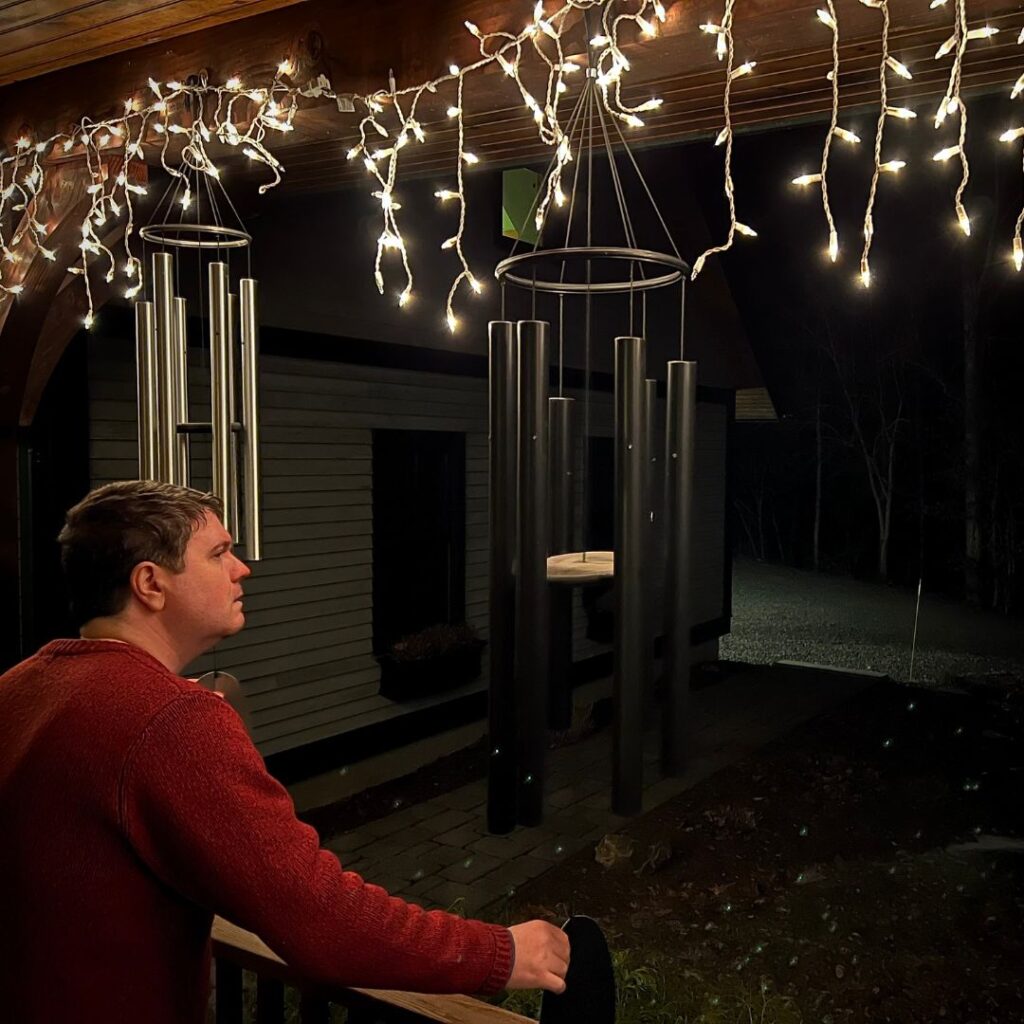
How do you see these ideas informing your label, Florabelle?
I’ve been trying to think of common threads with the records that I’ve chosen to release through Florabelle. If there’s something that does tie them in together in some way, other than they all have field recordings on them or a relatively small palette of instruments, I think that there is a kind of humility and intimacy to them.
I know that there are some ambient records that kind of feel vast and infinite and take you into outer realms, but I don’t think the records on the label necessarily do that. I feel they reframe things slightly for the listener or ask the listener to check in with themselves. And I also don’t think they’re necessarily nostalgic records, because I know that there’s a lot of music that is grounded in nostalgia and draws inspiration from it. It’s more a sense of just being present, and I’m proud of that.

